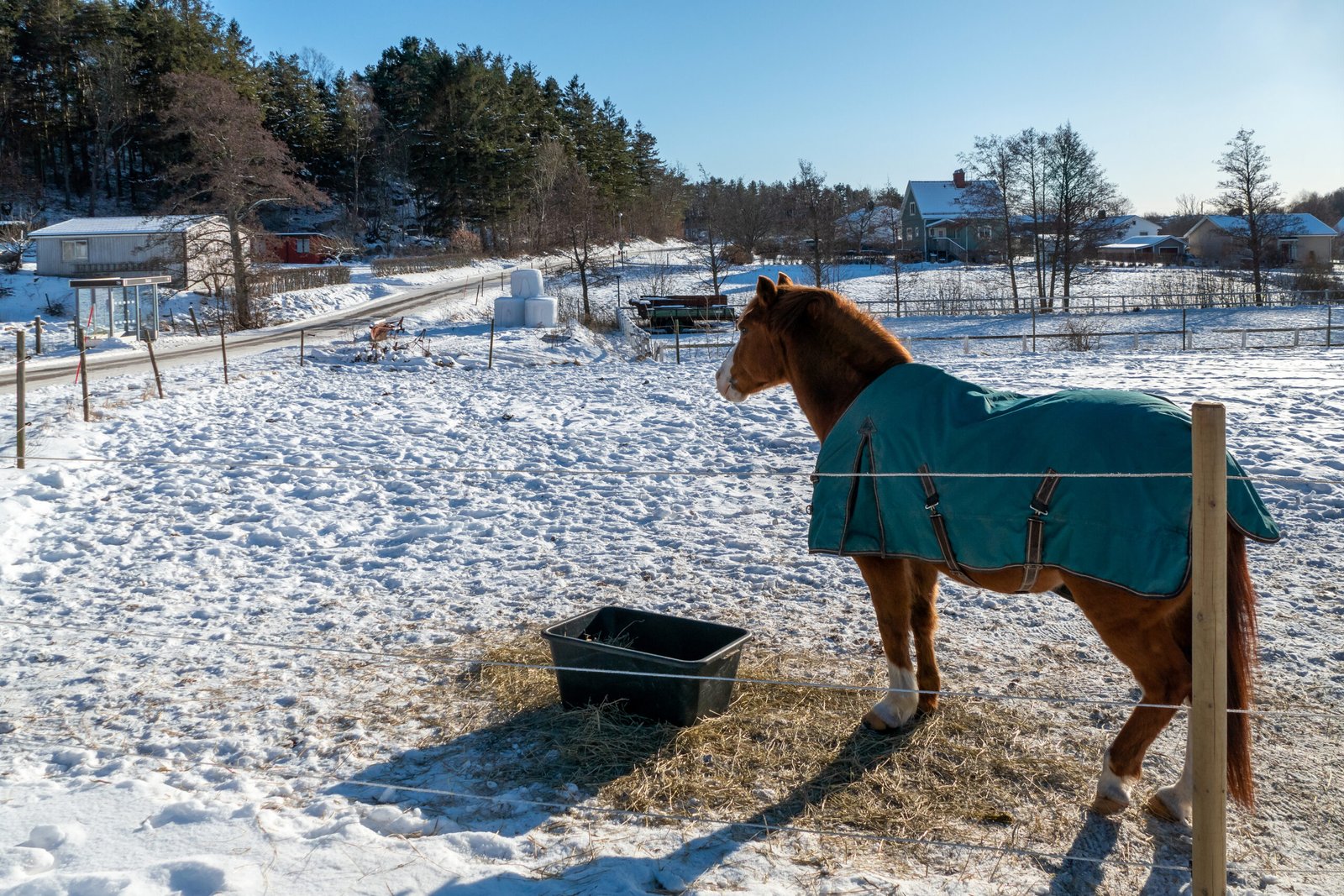Winter brings with it the challenge of keeping our equine friends warm and well-nourished. As the temperature drops, horses require more attention to their diet to ensure they stay healthy and energetic. Whether you’re a seasoned horse owner or new to the world of equestrian care, feeding your horse properly during the cold months is essential. Here are eight important tips to help you navigate the winter feeding routine and keep your horse in tip-top shape.
Understand the Increased Energy Needs
During winter, horses burn more calories to maintain their body temperature. It’s similar to how a car uses more fuel when driving uphill. Therefore, it’s crucial to increase their caloric intake. Forage, such as hay, is an excellent source of energy and should be the primary component of their diet. Remember, hay acts like a natural furnace for horses, creating heat as they digest it. Consider adding extra hay to their meals to ensure they’re getting enough energy to stay warm. Monitor their body condition regularly and adjust their feed accordingly.
Provide Quality Forage
High-quality forage is the cornerstone of a horse’s diet, especially in winter. It’s like providing them with a warm blanket that wraps them in comfort. Make sure the hay you offer is free from mold and dust, as these can cause respiratory issues. Timothy hay, orchard grass, or alfalfa are great choices. The key is to ensure that the hay is fresh and stored properly to prevent degradation. Regularly inspect the hay for unwanted substances, and if possible, have it tested for nutritional content to ensure your horse is getting the best.
Consider Adding Supplements

While forage is essential, supplements can fill nutritional gaps in your horse’s diet. Think of them as vitamins for your horse. During winter, vitamin E and selenium become particularly important as they support immune function. Omega-3 fatty acids found in flaxseed or fish oil can also help maintain a shiny coat and healthy skin. Always consult with your veterinarian before introducing new supplements to ensure they meet your horse’s specific needs.
Ensure Adequate Water Intake
Horses can sometimes drink less water in winter, leading to dehydration, much like how we might not feel thirsty in cold weather. It’s vital to ensure they have access to fresh water at all times. Consider using a heated water bucket to prevent the water from freezing. Horses prefer to drink water that is slightly warm, which encourages them to drink more. Check the water source regularly to make sure it’s clean and free from ice.
Monitor Body Condition Score
Regularly assess your horse’s body condition score (BCS) to ensure they’re maintaining a healthy weight. This score is like a report card for your horse’s health. If you notice your horse losing weight, it might be a sign that they’re not getting enough calories. Conversely, if they’re gaining too much weight, you may need to adjust their feed. Use your hands to feel along their ribs and body, as their winter coat can sometimes hide changes in body condition.
Provide Shelter and Windbreaks
While not directly related to feeding, providing adequate shelter is crucial for your horse’s well-being during winter. Think of it as giving them a cozy home to retreat to. A well-constructed shelter or windbreak can help protect them from harsh winds and cold temperatures, reducing their energy expenditure. This means they won’t need to burn as many calories to stay warm, allowing their feed to be used more efficiently for energy.
Adjust Feed According to Workload
Just like athletes, horses have different energy needs based on their activity levels. If your horse is still in regular work during winter, they will require more calories to sustain their energy levels. Conversely, a horse that is less active may need less feed to prevent weight gain. Tailor their diet to match their workload, and be ready to make adjustments as their activity level changes throughout the season.
Be Mindful of Sudden Changes
Horses have sensitive digestive systems, and sudden changes in their diet can lead to colic or other health issues, much like how a sudden change in diet might upset our stomachs. When introducing new feeds or supplements, do so gradually over a period of 7-10 days. This allows their digestive system to adjust without causing discomfort or health problems. Keep a close eye on their behavior and health during this transition period.
To conclude, feeding a horse in winter requires careful attention and understanding of their unique needs. By focusing on providing quality forage, adequate water, and necessary supplements, you can ensure your horse stays healthy and happy throughout the colder months. Consistent monitoring and adjustments to their diet will help you keep them in peak condition, ready to face the challenges of winter with strength and vitality.